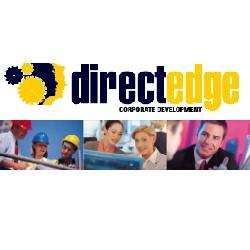The problem with work is...
Published on 11 July, 2002
The following is the first in a monthly series of professional consultations with Ricki Jeffery, General Manager of DirectEdge, the corporate development agency associated with CQU.
- - - - - .
The problem with going to work is there are problems at work. Most people spend more time and energy going around problems than trying to solve them. I didn’t say that. Henry Ford did.
 Solving problems is an often overlooked, but important component of effectiveness at the workplace. The Department of Education, Science and Training (DEST) recently identified “problem solving” as a significant area where employees, especially new graduates, were often deficient.
Solving problems is an often overlooked, but important component of effectiveness at the workplace. The Department of Education, Science and Training (DEST) recently identified “problem solving” as a significant area where employees, especially new graduates, were often deficient.
Employers and employees need to stimulate critical and creative thinking skills. Review these traps and compare them to your work environment.
1. Is there “anchoring” (stereotypes, prejudices or similar experience) at the workplace? Instead, view problems from different perspectives and don’t automatically stick with what ever occurs to you first.
2. Do you stick with the status quo? Don’t complete a task just because you feel comfortable doing it. Keep your objectives clearly in mind and ask yourself, “Does the status quo serve my objectives well or would an alternative serve them better?”.
3. Not cutting your losses? Prolonging a mistake only compounds its error. See the situation with new eyes. Ask for objective opinions, especially from people who were not involved in the original decision.
4. Seeing what you want to see? Don’t decide what you want to do and then figure out why you want to do it. Consciously treat all the evidence and information objectively, both the pros and cons. Find someone to play devil’s advocate and argue against your preferred decision.
5. Framing. Frame problems in different ways. Don’t automatically accept the way a problem is presented to you. Look for distortions. Pose problems in neutral ways that combine gains and losses and reflect different reference points.
6. Estimate and Forecast. Be disciplined in making forecasts and judging probabilities. Consider the extremes. Examine all your assumptions. Try not to be guided by impressions and use accurate facts and figures when you can.
Direct Edge -- a 13-year-old, Rockhampton-based, accredited corporate development agency -- provides learning programs and services to small business, industry and the government sector. Drawing on the resources of Central Queensland University, Direct Edge offers one-on-one coaching and team training in Customer Service, Successful Decision Making. Conflict Resolution, Marketing, Time Management, Workplace Negotiation and more. For further information on Direct Edge call 4923 2543 or go to http://www.directedge.com.au/.

